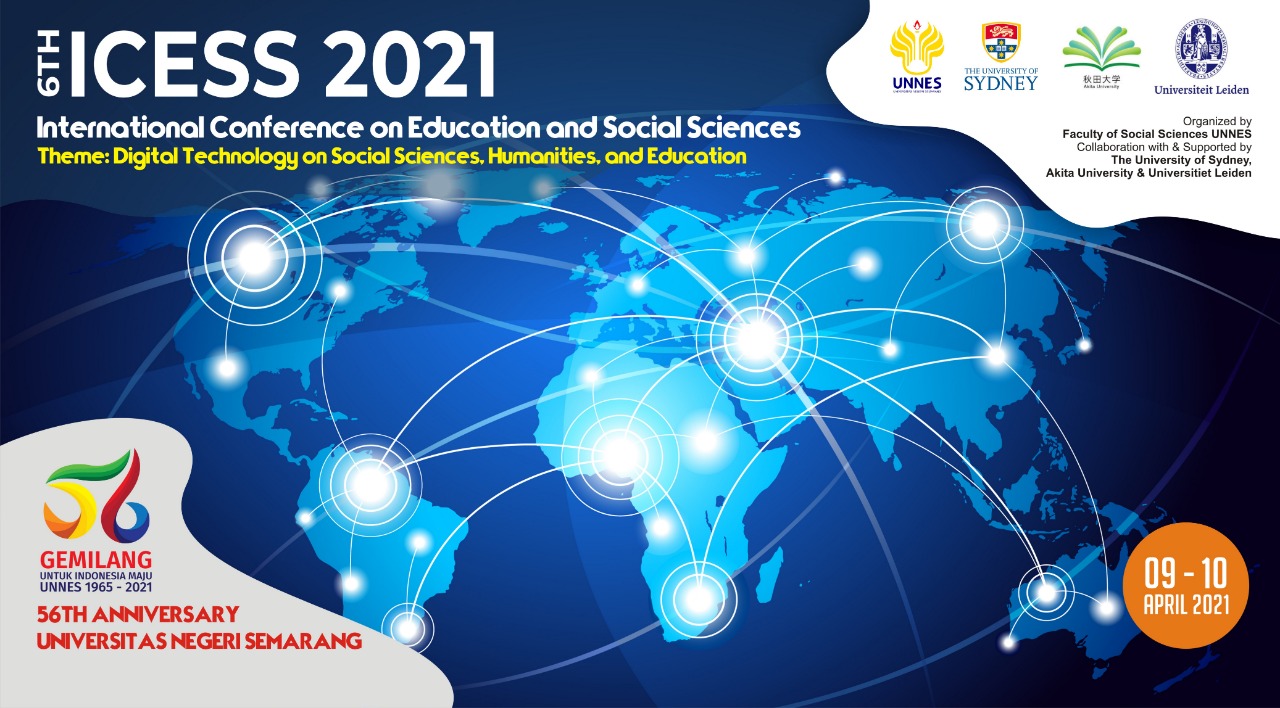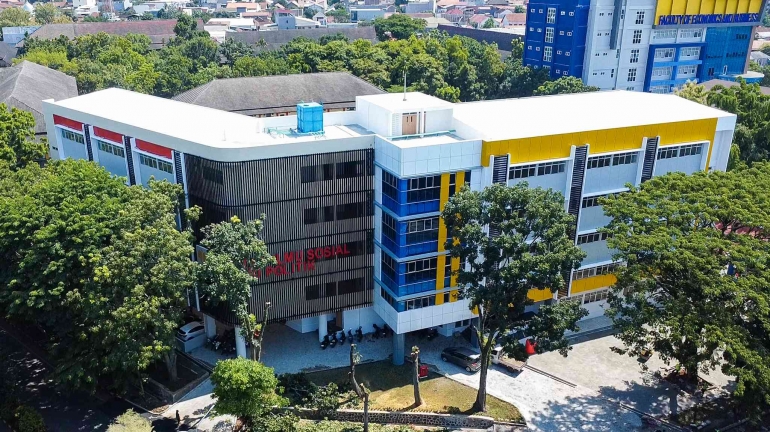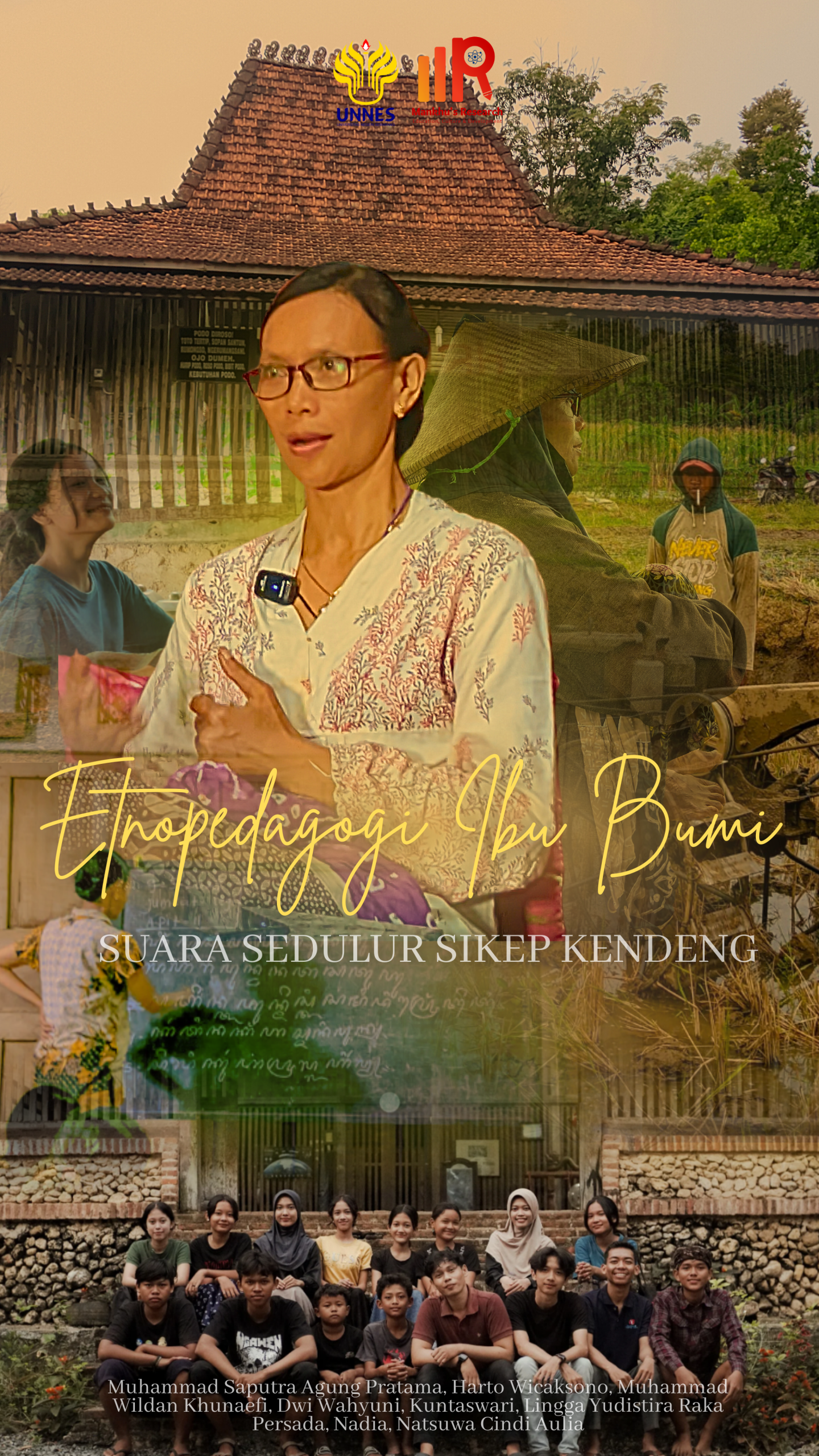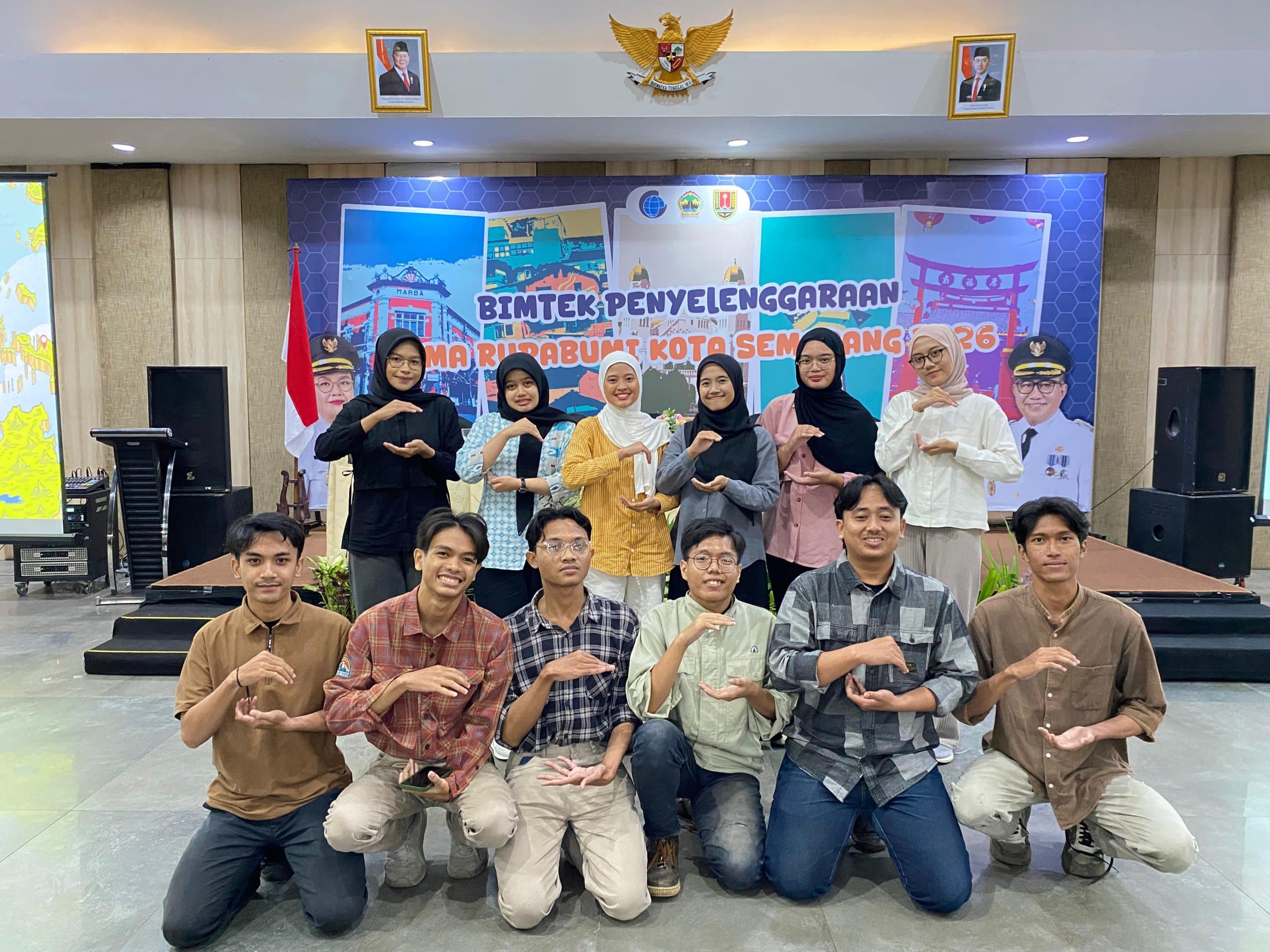Semarang, FIS UNNES 2021. ICESS sangat mendukung visi UNNES Menjadi universitas berorientasi konservasi dengan reputasi internasional. ICESS ini membawa kita untuk berdiskusi dan menganalisis permasalahan yang akan dihadapi dalam perubahan global, khususnya yang terjadi dalam dunia pendidikan dan ilmu sosial. Ini juga sejalan dengan semangat UNNES sebagai rumah ilmu pengembang peradaban yang senantiasa dirancang untuk pengembangan akademik dan tradisi berprestasi.
Hal tersebut disampaikan oleh Rektor Universitas Negeri Semarang yang diwakili oleh Wakil Rektor Bidang Akademik, Prof. Dr Zaenuri Mastur, SE, M.Si, Akt pada saat membuka sekaligus sebagai pembicara kunci dalam 6th International Conference on Education and Social Sciences (ICESS) 2021 yang diselenggarakan oleh Fakultas Ilmu sosial Universitas Negeri Semarang (Jum’at, 9 April 2021).
Zaenuri memaparkan bahwa tradisi berprestasi Unnes dapat dilihat dari beberapa indikator. Menurut Greenmetric Green Campus UI, UNNES berhasil meraih peringkat 6 tingkat nasional dan peringkat 66 tingkat internasional. Hal tersebut menunjukkan bahwa UNNES memiliki komitmen untuk mencapai visinya sebagai Universitas Konservasi.
Sebagai reputasi internasional, 4 departemen UNNES mencapai sertifikasi internasional, yaitu Jurusan Pendidikan Bahasa Indonesia dari Fakultas Bahasa dan Seni, Biologi dari FMIPA, Pendidikan Fisika dari FMIPA, dan Ekonomi Pembangunan dari Fakultas Ekonomi.
UNNES konsisten mengembangkan nilai-nilai reputasi akademis khususnya bagi generasi milenial dengan memperkuat pencapaian peningkatan melalui publikasi yang terindeks scopus.Hal tersebut dilakukan untuk mempromosikan diri sekaligus menunjukkan bahwa kampus ini tidak pernah berhenti mencapai level yang lebih tinggi meskipun pada tahun 2020 UNNES mendapat penghargaan sebagai perguruan tinggi dengan predikat Nilai Kinerja Anggaran Terbaik. Dalam 10 TAHUN ini UNNES terus menerus mendapatkan prestasi sebagai Area Bebas Korupsi & Area Bersih dan Melayani Birokrasi, Zona Integritas.Prestasi lain, Tahun 2021 ini, UNNES menduduki peringkat ke-2 se-Indonesia penerimaan SNMPTN atau Penerimaan Mahasiswa Nasional dan Peringkat ke-4 Jumlah Peminat SNMPTN 2021 terbanyak. Semua capaian prestasi tersebut merupakan perwujudan Milestone UNNES dari tahun 2020 hingga 2024 UNNES yang mempunyai 2 tujuan utama, yaitu tumbuh sebagai universitas riset dan universitas pengajaran.
Tentunya ICESS ini merupakan salah satu strategi untuk mengembangkan inovasi penelitian di UNNES. ICESS 2021 kali ini bertema Teknologi Digital pada Ilmu Sosial, Humaniora, dan Pendidikan. Tema ini dipilih oleh Fakultas Ilmu Sosial yang menaungi bidang ilmu sosial dan diharapkan dapat menjadi pusat inovasi, terutama inovasi pada masa pandemi Covid-19. Tentunya tema ini sejalan dengan tujuan Dies Natalis atau HUT UNNES yang ke lima puluh enam. Salah satu implementasinya di bidang pendidikan dalam mewujudkan UNNES sebagai Shining University for Advanced Indonesia.
Kami juga memahami betul bahwa TIK adalah inti utama kehidupan sehari-hari untuk era saat ini seperti yang dikemukakan di masa dini oleh Mahayana tahun 1999: Perkembangan ilmu pengetahuan dan teknologi dalam lima tahun terakhir berdampak pada taraf peradaban manusia yang telah merancang perubahan besar dalam menata pola dan perilaku masyarakat. Jelas, peran teknologi digital semakin dominan saat dunia menghadapi penyebaran virus Covid-19.
Situasi pandemi memaksa manusia untuk membatasi terjadinya hubungan sosial langsung dan mengalihkannya ke dalam hubungan yang dimediasi secara virtual melalui teknologi digital.
Dunia baru ini perlu dibenahi secara ilmiah terutama dari perspektif ilmu sosial, humaniora, dan pendidikan untuk mengevaluasi dan mengembangkan ilmu dari aspek metode, kajian, substansi teori ilmiah, dan praktek yang baik guna menemukan penalaran akademik yang tepat dalam menghadapi perubahan yang sedang berlangsung.
Di bagian ahir, Zaenuri menegaskan bahwa ICESS 2021 yang memiliki 11 sub tema ini diharapkan dapat menghasilkan ide-ide penting dan berharga serta merancang kontribusi dan kolaborasi yang semaksimal mungkin bagi sistem pendidikan baik di Indonesia maupun dunia.Diharapkan para pemangku kepentingan eksekutif di industri yang terlibat langsung maupun tidak langsung seperti akademisi, praktisi industri, dan pengambil kebijakan dapat bekerja sama dengan UNNES untuk saling bertukar informasi sehingga rumusan tersebut dapat diperoleh sebagai kontribusi dalam menghadapi tantangan global ke depan.
Dr. Moh Solehatul Mustofa, MA, Dekan FIS UNNES sekaligus mewakili penyelenggara menyampaikan penghargaan dan ucapan terima kasih kepada seluruh pihak yang mengikuti kegiatan tersebut.
Mustofa, menginformasikan bahwa ICESS 2021 menghadirkan 5 pembicara, masing-masing Rektor Universitas Negeri Semarang, William Bradley Horton, Ph.D, Associate Professor, Faculty of Education and Human Studies dari Akita University, Prof. Hans Pols, Faculty of Scince dari The University of Sidney, Dr. Suryadi, Faculty of Humanities dari Leiden University, dan Prof. Dr. Wasino, M. Hum, Faculty of Social Science dari Universitas Negeri Semarang. ICESS 2021 juga diikuti oleh peserta dan pemakalah yang berasal dari beragam perguruan tinggi dan topik penelitian yang bervariasi.
Selanjutnya Mustofa menyampaikan bahwa panitia sudah berupaya maksimal dalam mempersiapkan kegiatan dan mengharapkan peserta dapat mengikuti jalannya kegiatan dengan nyaman, tidak lupa menyampaikan permohonan maaf jika dalam pelaksanaan kegiatan ada hal-hal yang kurang berkenan di hati peserta.
Bertindak sebagai pembicara hari pertama adalah William Bradley Horton, Ph.D, Associate Professor, Faculty of Education and Human Studies, Akita University yang menyampaikan materi Digital Humanities in the Covid Era: The Perspective of a Historian of Modern Indonesia from Northern Japan dan Prof. Hans Pols, Faculty of Scince, The University of Sidney yang menyampaikan materi tentang Epidemics in History Indonesia and Worldwide.




